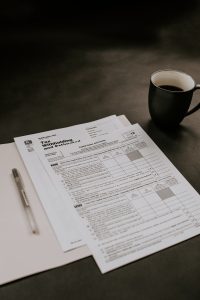Asset Class Futures or Forex: An In-Depth Discussion
The financial market is a diverse space that offers investors various opportunities to make profits. Two of the most popular investment options in the market are asset class futures and forex. In this article, we will delve into what asset class futures and forex are, how they work, and the differences between the two investment options.
Asset Class Futures
Asset class futures are contracts that allow investors to buy or sell a specific asset at a predetermined price and date in the future. The asset can be anything from commodities, stocks, bonds, or currencies. The contract’s price is determined by the market’s supply and demand, and the contract’s expiration date is agreed upon by both parties.
The goal of asset class futures is to speculate on the future price movement of the underlying asset. If an investor believes that the asset’s price will increase in the future, they can buy a futures contract at the current price. If the price goes up, the investor can sell the contract for a profit. On the other hand, if the investor believes that the price will decrease, they can sell the futures contract, and if the price goes down, they can buy it back at a lower price, making a profit.
Futures contracts are traded on regulated exchanges, such as the Chicago Mercantile Exchange (CME), and investors can trade them through brokers. The exchanges act as intermediaries between buyers and sellers, ensuring that the contracts are standardized and that all parties fulfill their obligations.
Forex
Forex, short for foreign exchange, is the market where currencies are traded. Forex trading involves buying one currency while simultaneously selling another currency. The currencies are traded in pairs, such as EUR/USD, where the euro is the base currency, and the US dollar is the quote currency.
Forex trading is done over the counter (OTC), meaning that there is no centralized exchange for forex trading. Instead, forex traders trade through a network of banks and brokers that connect buyers and sellers. Forex trading is open 24 hours a day, five days a week, and it is the most liquid market in the world, with an average daily trading volume of over $5 trillion.
The goal of forex trading is to speculate on the future price movement of a currency pair. If an investor believes that the base currency will appreciate against the quote currency, they can buy the currency pair. If the price goes up, they can sell the currency pair for a profit. On the other hand, if the investor believes that the base currency will depreciate, they can sell the currency pair. If the price goes down, they can buy it back for a profit.
Differences between Asset Class Futures and Forex
While both asset class futures and forex involve speculating on the future price movement of an asset, there are some key differences between the two investment options.
One of the main differences is the underlying assets. Asset class futures can be based on a wide range of assets, including commodities, stocks, bonds, and currencies. On the other hand, forex trading is focused solely on currency pairs.
Another difference is the market structure. Asset class futures are traded on centralized exchanges, while forex trading is done over the counter. This means that asset class futures are more regulated, and there is less counterparty risk compared to forex trading.
The trading hours are also different. Asset class futures trading is only available during specific trading hours, while forex trading is open 24 hours a day, five days a week.
Lastly, the leverage available in forex trading is generally higher than in asset class futures. This means that forex traders can control larger positions with a smaller amount of capital. However, this also means that forex trading has a higher risk of loss.
Conclusion
In conclusion, asset class futures and forex are two popular investment options in the financial market. Asset class futures involve speculating on the future price movement of a wide range of assets, while forex trading is focused solely on currency pairs. Both investment options have their pros and cons, and investors should carefully consider their investment goals, risk tolerance, and market knowledge before deciding which option to choose.





